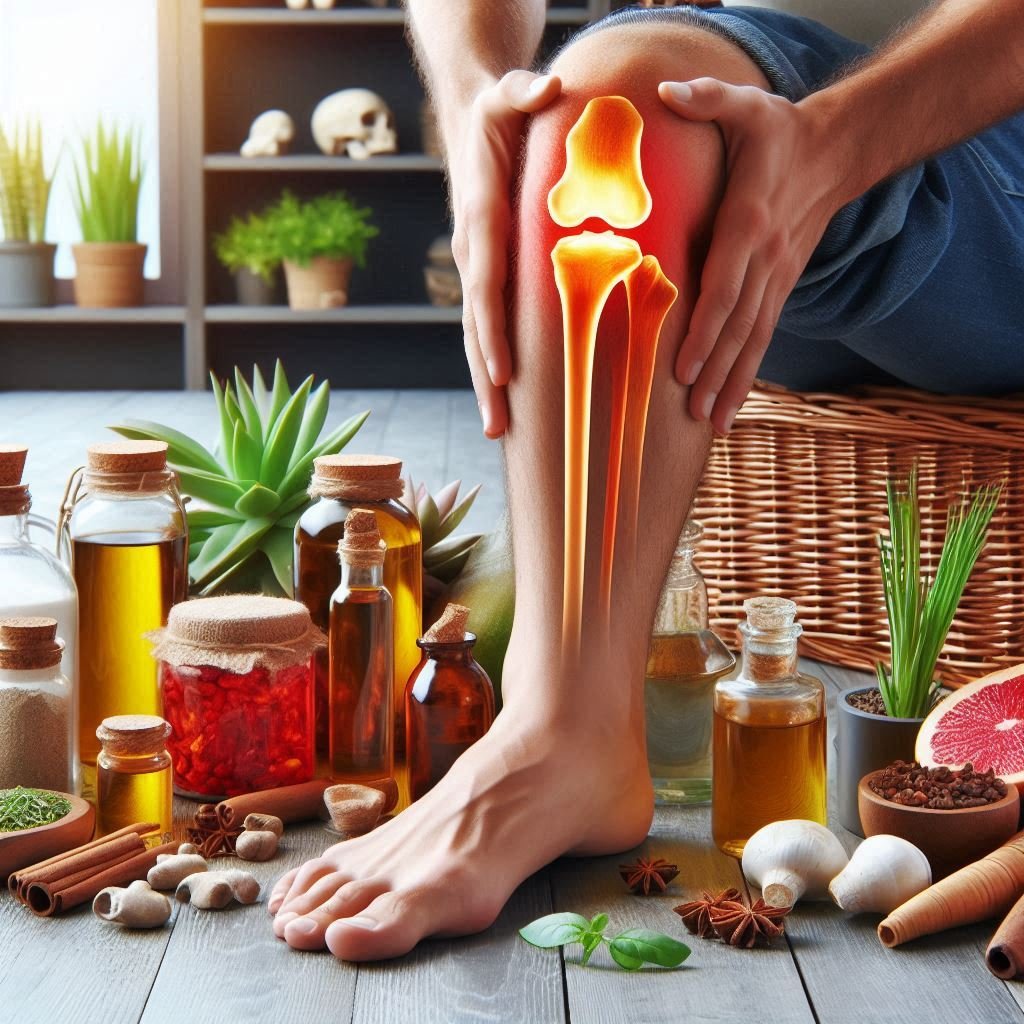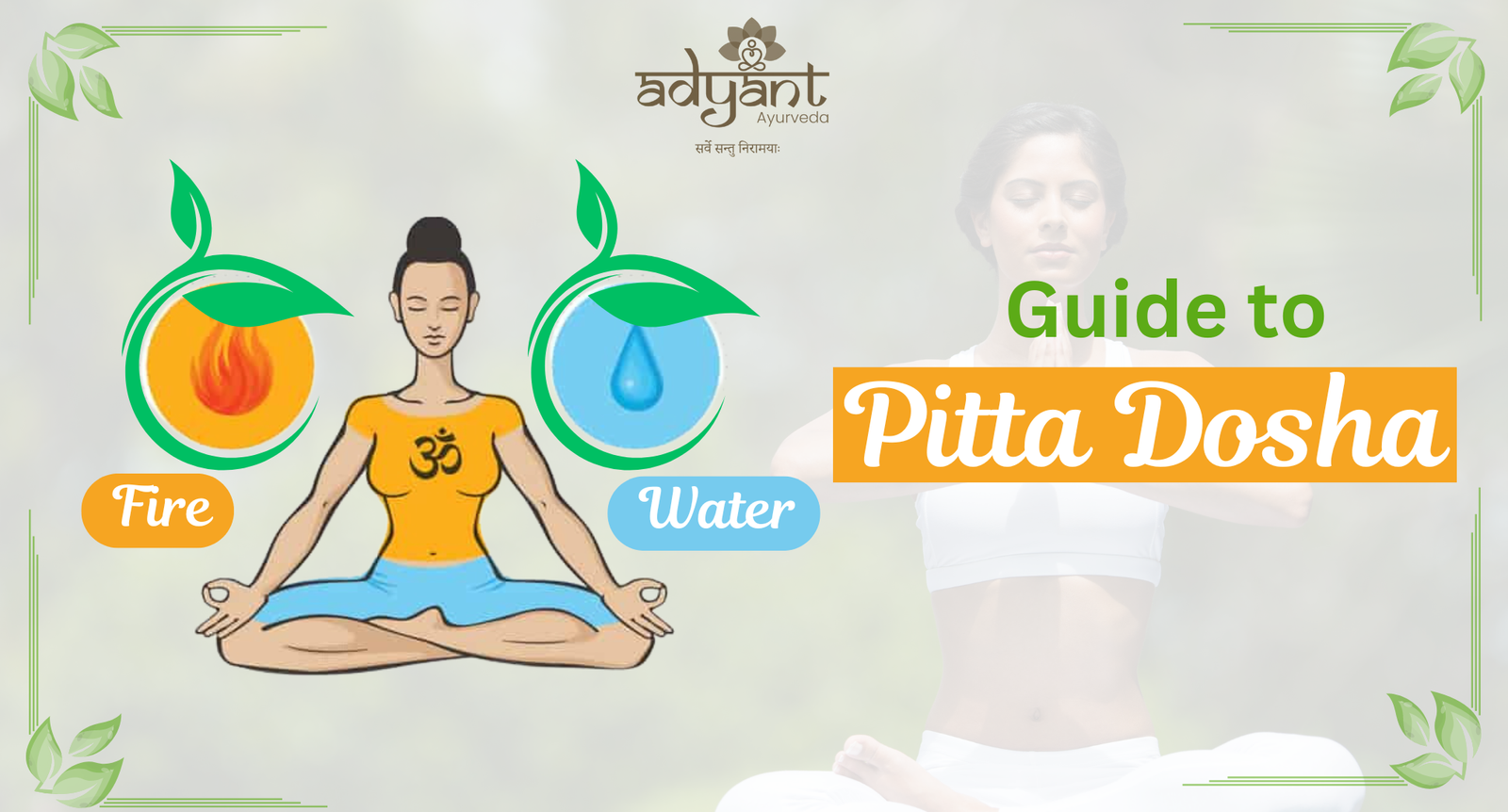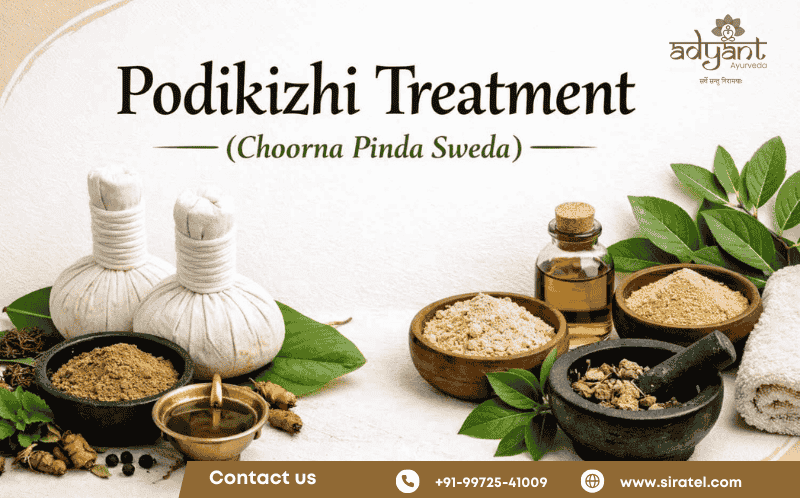Table of Contents
ToggleBest Home Remedies for Knee Pain: Knee pain is a common issue that affects people of all ages, whether due to aging, injuries, arthritis, or excessive strain. In Ayurveda, knee pain is primarily linked to an imbalance in the Vata dosha, which governs movement, flexibility, and lubrication in the joints. When Vata is aggravated, it leads to stiffness, dryness, inflammation, and discomfort in the knees.
 |  |
Fortunately, Ayurveda offers effective home remedies for knee pain that provide natural relief, nourish the joints, strengthen muscles, and improve mobility. These remedies focus on balancing Vata, reducing inflammation, and enhancing joint lubrication using natural ingredients and lifestyle modifications.
You May Also Like: Ayurvedic Treatment for Knee Pain: Oils, Remedy and Therapies
Let’s explore the best Ayurvedic home remedies for knee pain that can be easily incorporated into daily life.
Home Remedies for Knee Pain
1. Turmeric & Milk – The Best Home Remedy for Knee Pain
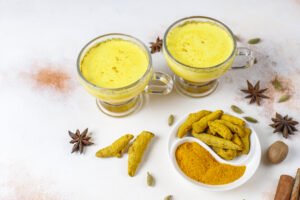
Why it Works:
Turmeric contains curcumin, a powerful anti-inflammatory compound that reduces swelling and stiffness in the knees. It also improves blood circulation and promotes healing.
How to Use:
- Mix 1 teaspoon of turmeric powder in a glass of warm milk.
- Add a pinch of black pepper (enhances curcumin absorption).
- Drink it once daily before bedtime for best results.
2. Ginger Tea – Reduces Swelling & Improves Circulation

Why it Works:
Ginger is one of the best Home Remedies for Knee Pain. It has anti-inflammatory and analgesic properties that help reduce knee pain by improving circulation and relaxing stiff joints.
How to Use:
- Boil 1 cup of water and add 1 teaspoon of grated ginger.
- Let it steep for 5-7 minutes, then strain and add honey.
- Drink twice daily for pain relief and improved joint flexibility.
3. Warm Oil Massage (Abhyanga) – Nourishes & Lubricates Joints

Why it Works:
Ayurvedic oils penetrate deep into the joints, providing warmth, reducing inflammation, and improving mobility. Massaging also enhances blood circulation and relaxes stiff muscles.
How to Use:
- Warm Mahanarayan oil, Sesame oil, or Ksheerabala oil.
- Gently massage the oil on your knee joint for 10-15 minutes.
- Follow with a warm compress or hot water bag for better absorption.
- Repeat twice daily for best results.
4. Fenugreek Paste – Strengthens Bones & Reduces Swelling
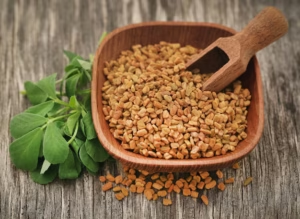
Why it Works:
Fenugreek (Methi) is rich in anti-inflammatory and antioxidant properties. It is one of the best Home Remedies for Knee Pain that helps relieve knee pain, strengthens joints, and reduces stiffness.
How to Use:
- Soak 1 teaspoon of fenugreek seeds overnight.
- Grind into a paste and apply to the knees.
- Leave for 30 minutes, then wash with warm water.
- Use daily for best results.
5. Epsom Salt Bath – Relaxes Muscles & Reduces Stiffness

Why it Works:
Epsom salt is rich in magnesium, which helps relax muscles, reduce swelling, and ease knee pain.
How to Use:
- Add 1 cup of Epsom salt to a tub of warm water.
- Soak your knees for 15-20 minutes.
- Repeat 3-4 times a week for relief.
6. Garlic & Mustard Oil – Boosts Circulation & Reduces Inflammation

Why it Works:
Garlic has anti-inflammatory and analgesic properties, while mustard oil improves blood circulation and strengthens knee tissues.
How to Use:
- Crush 4-5 garlic cloves and heat in 2 tablespoons of mustard oil.
- Let it cool slightly and massage onto the knees.
- Leave for 30 minutes, then rinse with warm water.
- Repeat daily for relief.
7. Aloe Vera & Coconut Oil – Soothing & Cooling Effect

Why it Works:
Aloe vera is a natural pain reliever, while coconut oil helps lubricate joints and reduce dryness caused by aggravated Vata.
How to Use:
- Mix 1 tablespoon of aloe vera gel with 1 teaspoon of coconut oil.
- Apply on the affected knee and massage gently.
- Leave overnight for deep healing.
8. Janu Basti – Ayurvedic Knee Therapy at Home
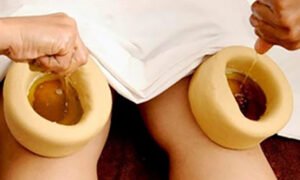
Why it Works:
Janu Basti is a specialized Ayurvedic therapy where warm medicated oil is retained on the knee joint, deeply nourishing the tissues and reducing pain.
How to Do It at Home:
- Make a dough ring using whole wheat flour and place it around the knee.
- Pour warm Mahanarayan oil inside and let it stay for 20 minutes.
- Repeat 3-4 times a week for best results.
Best Home Remedies for Knee Pain Incorporated Into Lifestyle & Dietary
1. Vata-Pacifying Diet for Knee Health: Include warm, moist foods like ghee, soups, cooked vegetables, and whole grains.
Include warm, moist, and nourishing foods:
- Whole grains (quinoa, wheat, rice)
- Ghee (clarified butter) for joint lubrication
- Root vegetables (carrots, sweet potatoes, beets)
- Fresh fruits (papaya, apples, bananas)
- Avoid cold, stale, and processed foods that increase Vata.
2. Stay active – Practice gentle yoga, stretching, and walking to maintain joint mobility.
3. Hydration is key – Drink lukewarm water with lemon and honey to flush out toxins.
4. Avoid cold foods & drinks – These aggravate Vata dosha and worsen joint pain.
5. Weight management – Extra weight puts stress on the knees, worsening pain.
When should you seek Ayurvedic Treatment for knee pain?
If knee pain persists for more than a few weeks, worsens over time, or is associated with swelling, redness, or reduced mobility, consult an Ayurvedic doctor for a personalized treatment plan.
At Adyant Ayurveda, we offer customized Ayurvedic treatments, specialized knee therapies, and home-based Panchakarma solutions for long-term knee health.
Author & Reviewer
This article is authored by Dr. Sumanana, an experienced Ayurveda physician specialising in holistic wellness and joint care. The content has been medically reviewed by Dr. Shree Lakshmi, a qualified Ayurvedic doctor with expertise in Panchakarma and musculoskeletal disorders, ensuring accuracy, safety, and alignment with authentic Ayurvedic principles.
Disclaimer
The information provided in this article is for educational purposes only and should not be considered a substitute for professional medical advice, diagnosis, or treatment. Always consult a qualified Ayurvedic doctor or healthcare professional before starting any new remedy, therapy, or lifestyle practice, especially if you have chronic knee pain, swelling, or underlying medical conditions. Results may vary from person to person.
FAQs – Best Home Remedies for Knee Pain
What causes knee pain according to Ayurveda?
Ayurveda links knee pain primarily to an aggravated Vata dosha, which leads to dryness, stiffness, reduced lubrication, and inflammation in the joints.
Are Ayurvedic home remedies effective for chronic knee pain?
Yes. Remedies like turmeric milk, oil massage, ginger tea, and fenugreek paste help reduce inflammation, lubricate joints, and improve mobility. For severe or long-term pain, consulting an Ayurvedic doctor is recommended.
How long does it take to see results from these home remedies?
Most people experience relief within a few days to a couple of weeks, depending on the severity of the pain, consistency of remedies, and lifestyle habits.
Is turmeric milk really helpful for knee pain?
Absolutely. Turmeric contains curcumin, a natural anti-inflammatory compound that reduces swelling, improves circulation, and eases stiffness when consumed regularly.
Can I do warm oil massage (Abhyanga) at home?
Yes. Gently massaging the knee with warm Mahanarayan oil, Sesame oil, or Ksheerabala oil improves lubrication and reduces inflammation. Follow it with a warm compress for better absorption.
Is Janu Basti safe to perform at home?
Yes, Janu Basti can be done at home with proper technique. Creating a dough ring and filling it with warm medicated oil provides deep nourishment and pain relief. However, for advanced cases, professional therapy is recommended.
Do dietary changes really help with knee pain?
Yes. A Vata-pacifying diet—including warm, moist, and nourishing foods—helps reduce dryness and stiffness. Avoiding cold, processed, and dry foods helps maintain joint health.
Can knee pain be related to a lack of physical activity?
Yes. A sedentary lifestyle worsens stiffness and joint discomfort. Gentle yoga, stretching, and daily walking help maintain flexibility and mobility.
When should I seek Ayurvedic treatment instead of home remedies?
If knee pain persists for more than 2–3 weeks, increases in intensity, or is accompanied by swelling, redness, or difficulty walking, it’s best to consult an Ayurvedic doctor for a personalized plan.
Does Adyant Ayurveda provide treatments for knee pain?
Yes. Adyant Ayurveda offers customized knee treatments, specialized therapies like Janu Basti, Virechana, and home-based Panchakarma solutions for long-term relief and improved joint health.
Book a consultation today and experience the healing power of Ayurveda for knee pain relief!


